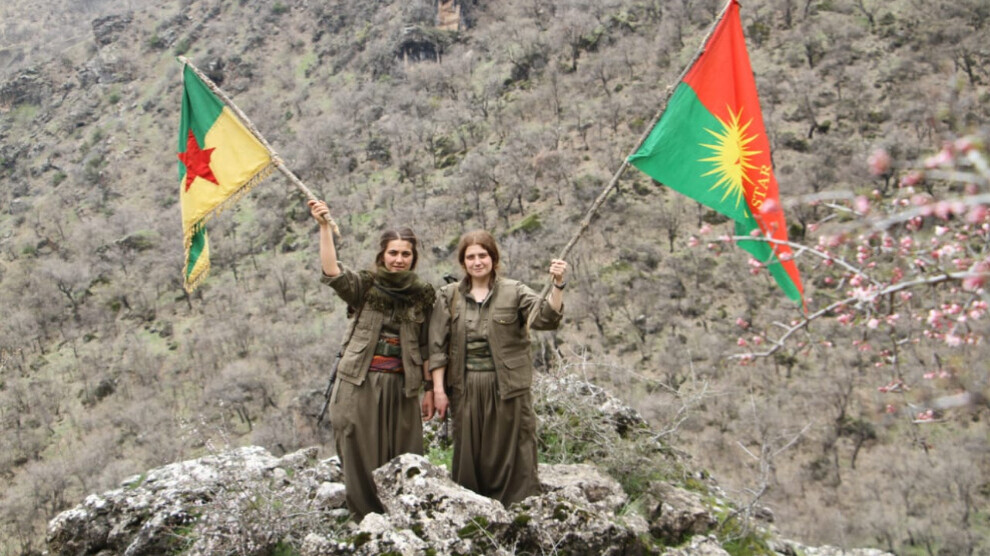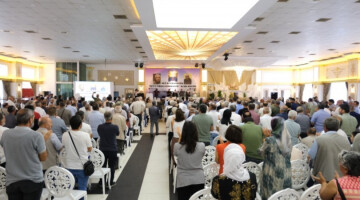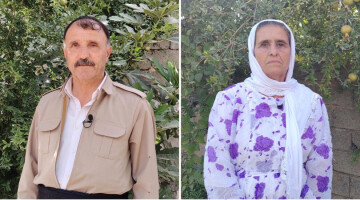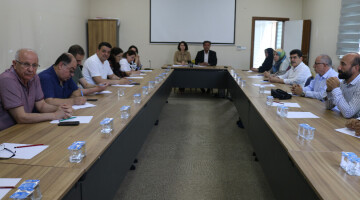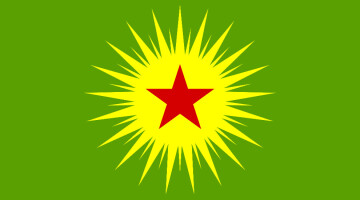The Turkish army is unable to break the guerrilla resistance despite highly developed weapons technology and continues to rely on the use of outlawed warfare agents. This is pointed out by the Media and Communication Centre of the People's Defense Forces (HPG) in a current overview of the war in southern Kurdistan (northern Iraq). At least 43 chemical weapons attacks were recorded on Sunday against the Werxelê resistance massif in the Avaşîn region, according to the HPG's statement. The tunnel facilities at Girê FM and in the Karker area were attacked four times with various chemicals.
In contrast, the HPG and the Free Women's Troops (YJA Star) continue to go on the offensive with modern guerrilla tactics. At least ten Turkish soldiers were killed and another three wounded in recent actions to mark today's anniversary of the PKK taking up armed struggle on 15 August 1984.
The HPG gave the following details of the latest actions:
Zap
On the night of Monday, the occupying forces were attacked twice in the surroundings of the Çemço resistance area. The first action was carried out by mobile units from close range and at least three soldiers were killed. Later, the YJA Star put the military under fire with heavy weapons. On Saturday, guerrillas carried out a coordinated multi-front attack in the area, leaving three dead in the enemy ranks. A day earlier, the guerrillas took down a reconnaissance drone from the sky and seized the footage. In Saca, two soldiers were shot dead by HPG snipers on Sunday.
Metîna and Avaşîn
In Metîna, snipers took action against occupation forces. The units struck the invaders twice yesterday at Girê Cûdî, each time resulting in one dead soldier. In Avaşîn, the guerrillas destroyed two surveillance cameras installed near the Werxelê massif. In addition, a dog equipped with a camera and explosives had to be shot again there, which the Turkish army had sent into the guerrillas' tunnel system.
Expansion of the military infrastructure in Botan
HPG pointed out that the Turkish army is pushing ahead with the expansion of its military infrastructure in the Botan region in Northern Kurdistan: "With the support of local collaborators and contras, the occupiers are building various new outposts in the vicinity of Mount Cudi. In addition, new coal mines are being developed in the region for colonial exploitation. Currently, the Bilûrvan area is being plundered by these collaborative circles under the control and security of the enemy." To this end, according to the HPG, a guerrilla sabotage took place on 17 July. The action was directed against a vehicle containing "collaborators and contras". The vehicle was moving from Dola Hesena towards Bilûrvan when it detonated. "The vehicle was destroyed," the HPG explained. No details were given about deaths or injuries.
Further attacks by the Turkish army in the south
In addition to chemical weapons attacks, the Turkish army continues to carry out air and artillery attacks in southern Kurdistan. According to HPG information, the Girê Amêdî and the Şikefta Birîndara area were bombed 14 times by combat drones on Sunday. Other guerrilla areas were attacked twelve times by combat helicopters, and dozens of ground attacks were carried out by Turkish army outposts. The Goşînê area in Xakurke was bombed three times by fighter jets on Saturday.

